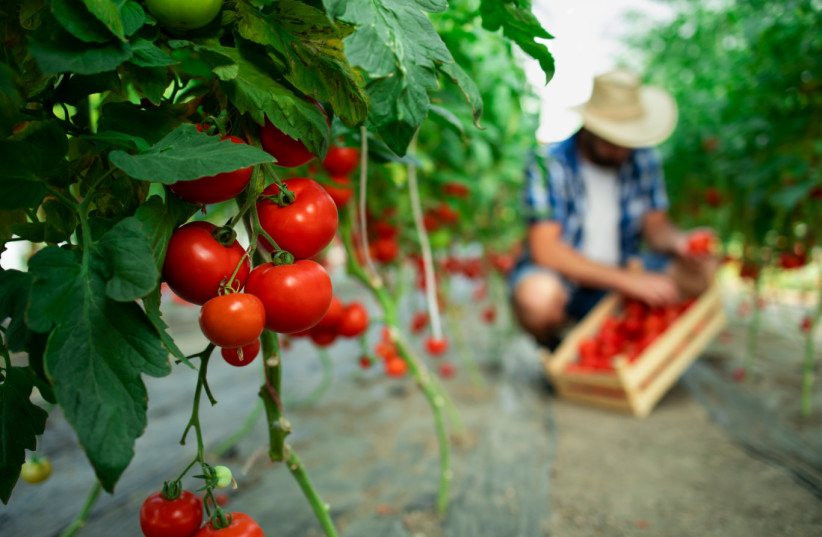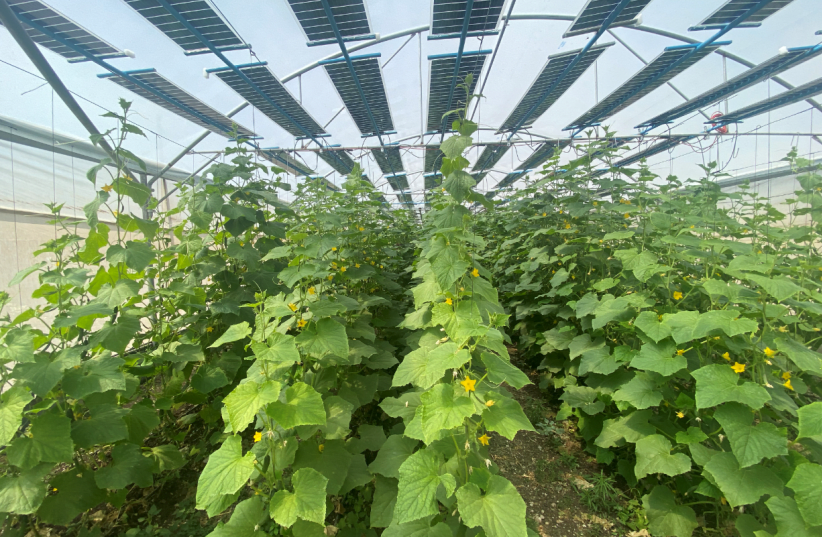Combining affordable clean energy with growing food in greenhouses is the aim of a new company that joins Jews and Arabs in the Galilee working to feed the world and reduce agriculture’s carbon footprint.
The European Union (EU), through the Horizon Europe Research and Innovation Program, has awarded €5.3 million to the REGACE Consortium to develop and demonstrate an innovative agrivoltaics technology by using CO2 enrichment to increase electricity yields.
The REGACE Consortium is composed of 12 partners from five countries.
How is Trisolar, Israel's REGACE partner, helping combine clean energy and greenhouse agriculture?
The Israeli partner, TriSolar, is holding its kickoff meeting Tuesday through Friday in Kafr Kara. The Triangle Research and Development Center was launched by Dr. Ibrahim Yehia, a Muslim Arab and engineer who worked in the field of semiconductors and is now the scientific director of the company and chief scientist.
“The REGACE technology will allow the dual use of land and infrastructure and will lead to reduced construction and maintenance costs, duration of execution and the reduction of CO2 emissions caused by conventional agri-voltaic installations,” Yehia said.
“The REGACE technology will allow the dual use of land and infrastructure and will lead to reduced construction and maintenance costs, duration of execution, and the reduction of CO2 emissions caused by conventional agrivoltaic installations.”
Ibrahim Yehia

In 2009, he conducted what was probably the world’s first scientific experiments with agri-voltaics, growing several rows of tomatoes shaded by organic photovoltaic panels. The results showed for the first time that it might be possible to generate electricity without an appreciable drop in the amount of food harvested.
His core idea was developed over the past five years in seven scientific research projects. In those studies, Yehia’s team explored how to reach the elusive target of truly cost-effective solar energy with food security, which led to the responsive tracking system that TriSolar is now offering the world.
TriSolar’s system delivers agri-voltaic power at a lower cost per kilowatt compared to other photovoltaic systems while responding to crop needs. Business development manager and co-founder Michael Eilan told The Jerusalem Post that over several growing seasons, significant photovoltaic power could be generated by the company’s system with absolutely no drop in crop yields. After successful trials in two commercial greenhouses, they are now scaling up for full pilot deployment in a commercial setting in different locations around the world with different crop types.
Dr. Esther Magadley, a solar energy engineer who has much research and industrial experience in renewable energy technologies in British universities and industry, is the chief technology officer and a co-founder of TriSolar. Ronen Katz, who has more than four decades of experience, is CEO and a co-founder.
The dangerous effects of climate change are happening faster than many people expected. Eilan noted that these effects, combined with high energy costs and food scarcity, show that much faster solutions for a cleaner planet are needed.
The consortium is a partnership with Germany, Austria, Greece, Italy and Belgium. The TriSolar Research and Development Center is under the aegis of the Science and Technology Ministry.
